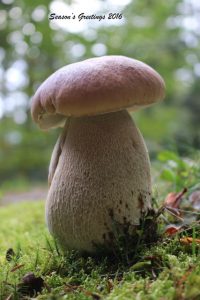Joyeux Noël! Merry Christmas!
Frohe Weihnachten! Feliz Navidad!


Joyeux Noël! Merry Christmas!
Frohe Weihnachten! Feliz Navidad!

________________________________________________________
Thursday, 8 December 2016
Faculté des Sciences et Technologies
Vandoeuvre-lès-Nancy
Amphithéatre 8
The Center for Agronomic Innovation (Carrefour de l’Innovation Agronomique – CIAg) has gained recognition for offering research institutions (INRA and other research and development centers geared toward innovation) a valued platform for disseminating new projects and research results. Through a series of topic-specific forum discussions structured to foster productive and informative exchanges between researchers and actors in private sector development, the CIAg has become an important contributor at the crossroads of socio-economic changes currently taking place in industry and the French territories.
INRA has organized an upcoming CIAg forum dedicated to the emergence of a bio-based economy for forest and wood. This event will take place on December 8, 2016 at the Faculty of Science in Vandoeuvre-lès-Nancy. This CIAg forum will involve AgroParisTech Nancy and the University of Lorraine, with support from LabEx ARBRE.
While France is at the forefront in Europe in terms of wood production, trends in net trade balance have shown a decades long chronic deficit (currently close to 6 billion euros per year). In this context, the investment initiative Research Innovation 2025 proposes a series of innovation actions for the forest-wood industry which take into account not only new uses for wood and the role of ecosystem services, but also sets out a new vision towards developing research-innovation relations in this sector
In particular, newly developed concepts focused on the bioeconomy, involving the circular economy, and accounting for cascading value of products, by-products and non-linear interactions between sector actors, together offer a comprehensive analytical framework that could potentially breathe new life into the industry. The CIAg will aim to revisit and illustrate innovation issues related to forest resource management and wood uses.
Registration is free and is open through October.
For more information..
LabEx ARBRE will hold is annual conference this year on 18 October 2016. Special focus will be given to research results from numerous multidisciplinary projects selected from the annual ARBRE call for proposals, those from knowledge-transfer projects funded within the framework of the 2015 ARBRE-RMT AFORCE joint call for proposals, recently launched actions connected to the upcoming merger between the BEF and LIF labs and to scientific mediation projects.
For the detailed meeting agenda please click here :Colloque annuel ARBRE 2016_ programme final
Main conference room — INRA Nancy-Lorraine Center, Champenoux
17 November 2015
08h30 – 18h00
The primary objective of this meeting will be to present a current overview of projects awarded funding from the 2012 LabEx call for proposals. It will aim to highlight key results and noteworthy achievements of research units working within the LabEx thematic areas (Research, Knowledge Transfer, Training-Dissemination).
For the detailed meeting agenda please click here – Programme
 The 1.5 Gbp genome of pedunculate oak (Quercus robur) has been sequenced. The released high-quality draft genome provides an invaluable resource for studies of the genomic patterns of divergence between oak species and determination of the genetic basis and mechanisms of reproductive isolation. It will also promote downstream genetic applications and catalyze future studies dealing with fundamental questions relating to forest tree adaptation. For more information read: Decoding the oak genome: public release of sequence data, assembly, annotation and publication strategies, by Christophe Plomion et al.
The 1.5 Gbp genome of pedunculate oak (Quercus robur) has been sequenced. The released high-quality draft genome provides an invaluable resource for studies of the genomic patterns of divergence between oak species and determination of the genetic basis and mechanisms of reproductive isolation. It will also promote downstream genetic applications and catalyze future studies dealing with fundamental questions relating to forest tree adaptation. For more information read: Decoding the oak genome: public release of sequence data, assembly, annotation and publication strategies, by Christophe Plomion et al.
The Oak Genome Consortium is excited to announce the release of the Quercus robur genome. The annotations may be browsed, searched, and downloaded at Oak Genome Portal at http://www.oakgenome.fr/
Sylvain Caurla, Noemie Goutal-Pousse and Tony Franceschini received prizes for their thesis work in 2012. Forest engineering graduates of AgroParisTech, they worked within three research units at the INRA center in Nancy, Lorraine . The awards were presented at a ceremony held in Metz on November 7th.